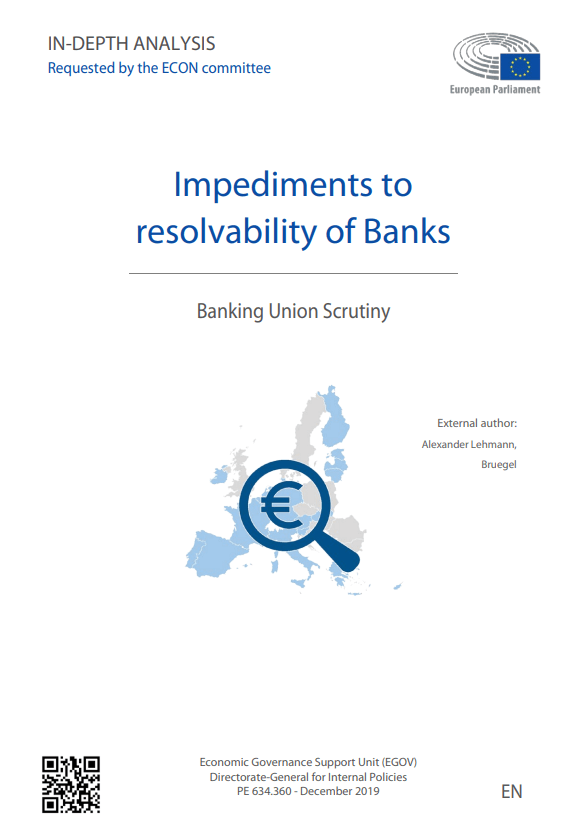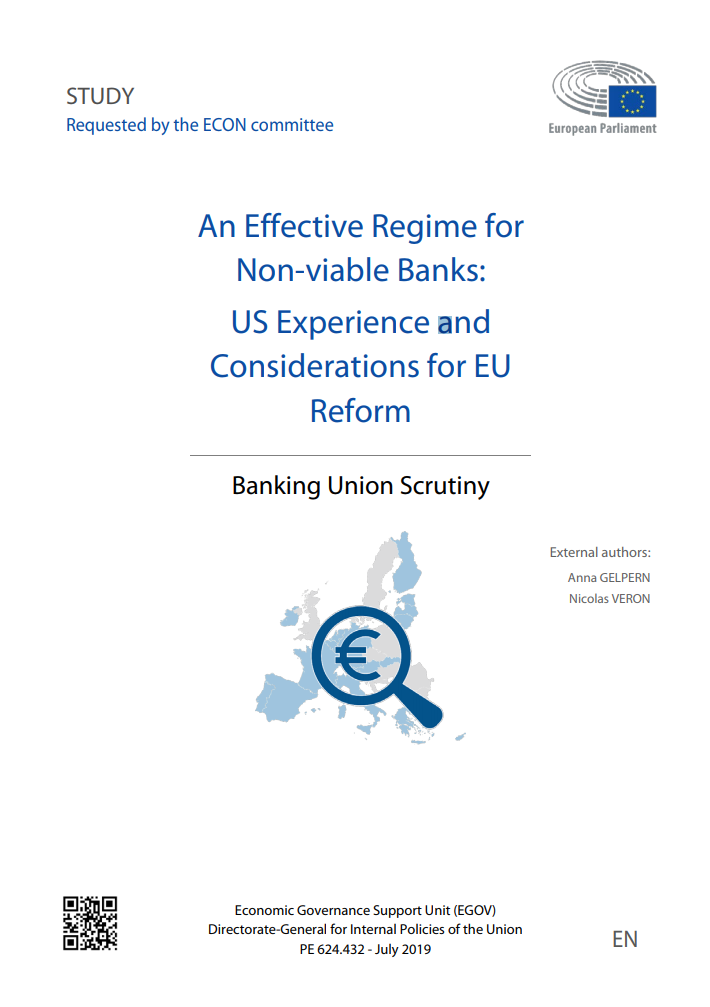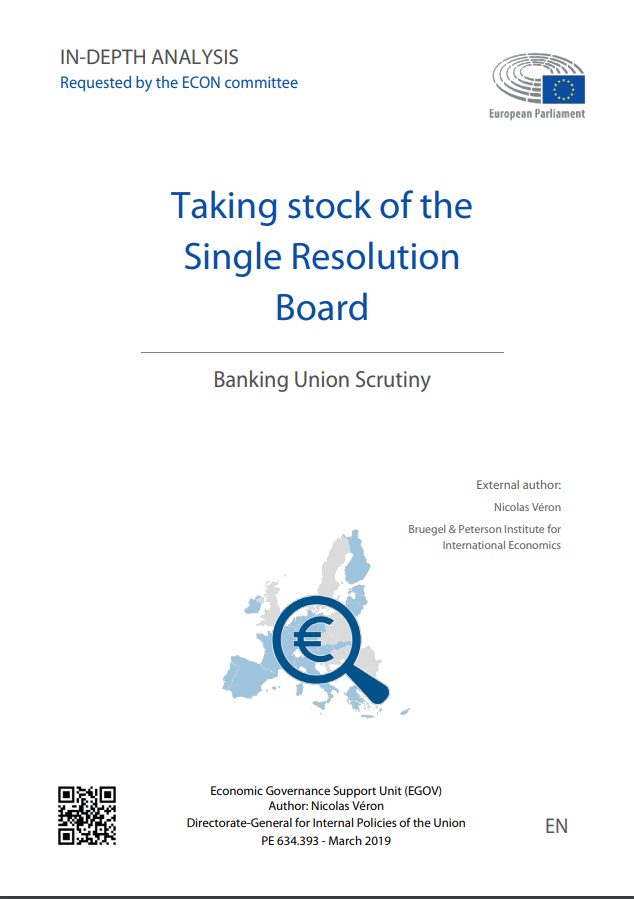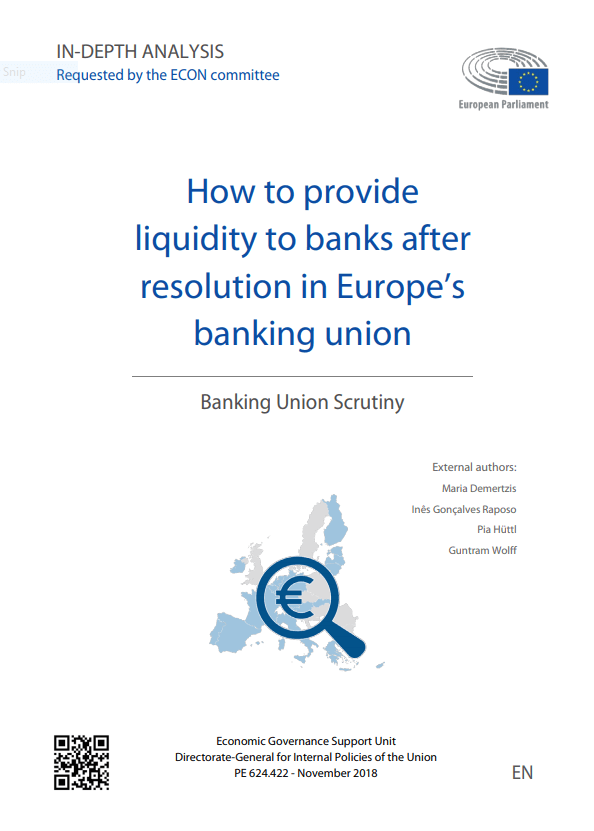Past Event
The state of the policy debate on the EU crisis management and deposit insurance framework
This members-only event welcomes Jan Reinder De Carpentier, Vice-Chair of the Single Resolution Board for a conversation with an invited audience.
At this invitation-only event we welcome Jan Reinder De Carpentier, Vice-Chair of the Single Resolution Board (SRB). He will engage in a conversation with Bruegel members and selected invitees. The conversation will be moderated by Nicolas Véron.
This event is part of a monthly series of events focusing on finance, open to Bruegel members and a small number of institutional stakeholders.
Schedule
14:00 CET
Conversation
Chair: Nicolas Véron, Senior Fellow
Jan Reinder De Carpentier, Vice-chair, Single Resolution Board (SRB)
Speakers

Nicolas Véron
Senior Fellow

Jan Reinder De Carpentier
Vice-chair, Single Resolution Board (SRB)
Location & Contact
Matilda Sevon
[email protected]












